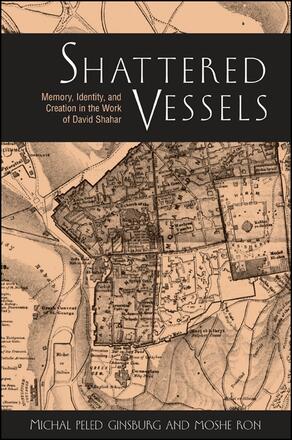
Shattered Vessels
Memory, Identity, and Creation in the Work of David Shahar
Alternative formats available from:
The first book-length study of the Israeli novelist David Shahar.
Description
David Shahar (1926–1997), author of the seven-novel sequence The Palace of Shattered Vessels, occupies an ambiguous position in the Israeli literary canon. Often compared to Proust, Shahar produced a body of work that offers a fascinating poetic and ideological alternative to the dominant models of Amos Oz and A. B. Yehoshua. This book, the first full-length study of this fascinating author, takes a fresh look at the uniqueness of his literary achievement in both poetic and ideological terms. In addition to situating Shahar within the European literary tradition, the book reads Shahar's representation of Jerusalem in his multi-volume novel as a "heterotopia"—an actual space where society's unconscious (what does not fit on its ideological map) is materially present—and argues for the relevance of Shahar's work to the critical discussion of the Arab question in Israeli culture.
Michal Peled Ginsburg is Professor of French and Comparative Literature and Chair of the Department of French and Italian at Northwestern University. She is the author of Flaubert Writing: A Study in Narrative Strategies; Economies of Change: Form and Transformation in the Nineteenth-Century Novel; and editor of Approaches to Teaching Balzac's Old Goriot. Moshe Ron is Senior Lecturer in English and Comparative Literature at the Hebrew University of Jerusalem. He is the translator of La Pharmacie de Platon by Jacques Derrida, as well as works by Raymond Carver and Paul Auster.
Reviews
"Ginsburg's and Ron's book is thorough, systematic, and insightful, and it puts Shahar in the context of his Israeli colleagues and the larger arc of European and English fiction. The concluding chapter, which elaborates a brilliant and illuminating comparison of Proust and Shahar, is alone worth the price of admission. I have read Shahar for years with great interest, both in the original Hebrew and in English translation, and learned a great deal from this deft book. It breaks significant new ground both in comparative literature and Israeli fiction. " — Murray Baumgarten, author of City Scriptures
"One of the admirable characteristics of David Shahar's narratives is their capacity to both dexterously and elegantly interweave aesthetic/artistic merits with a cogently persuasive ideological creed. This book does justice to those two interlaced routes in Shahar's work while discerning and tracing them prudently and insightfully. " — Yair Mazor, author of Somber Lust: The Art of Amos Oz